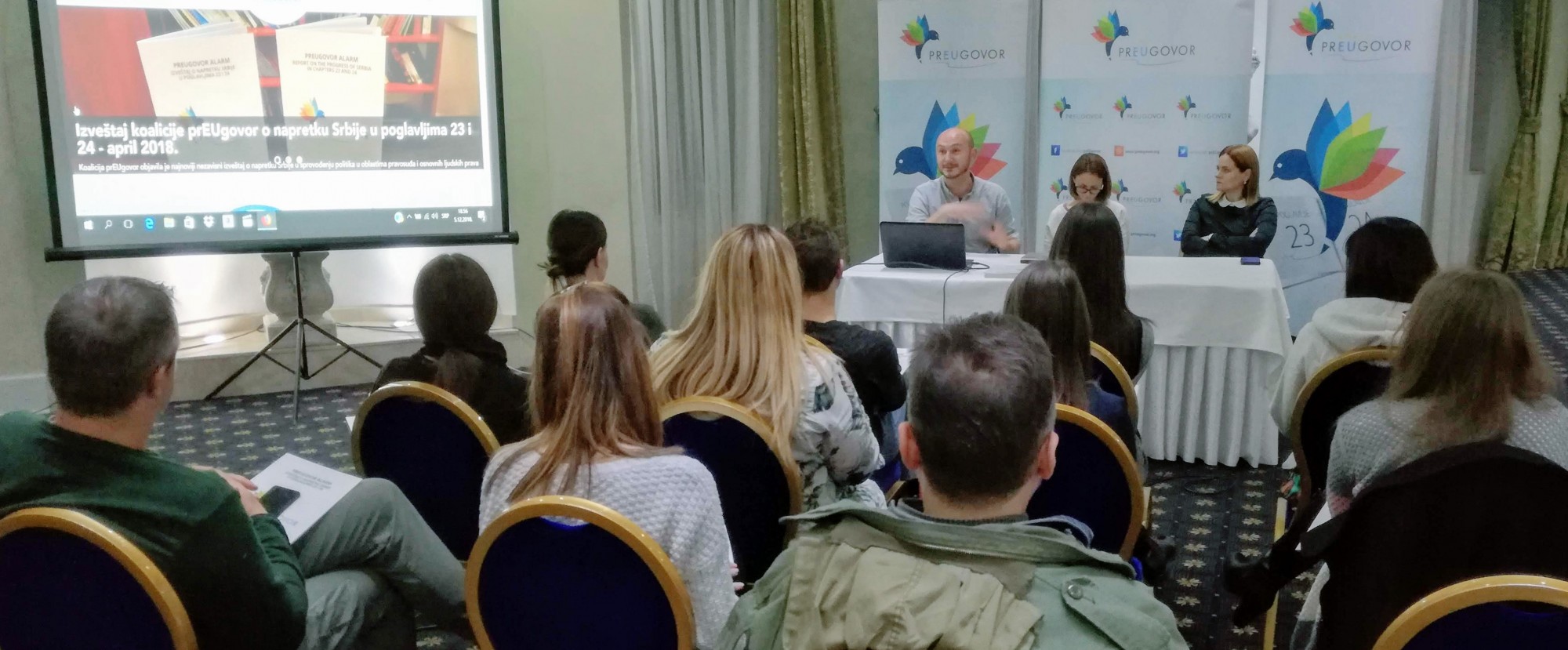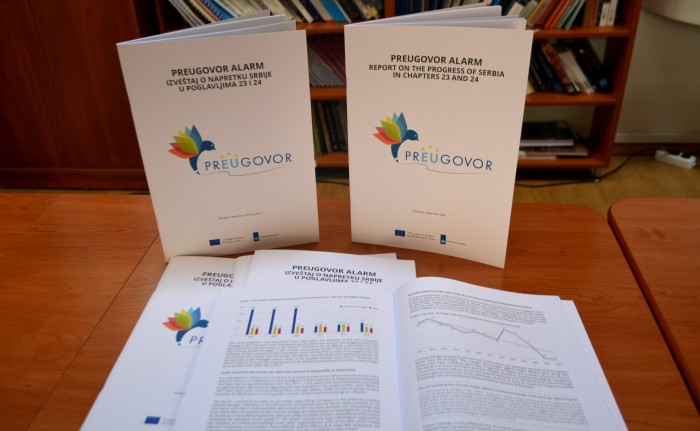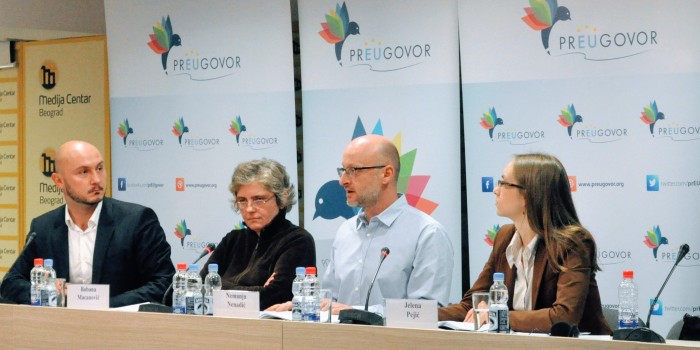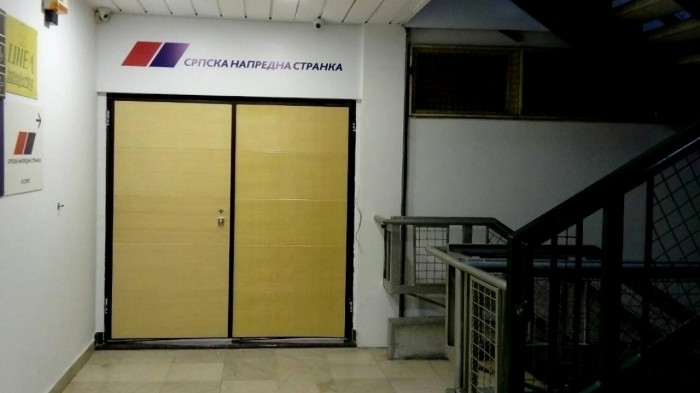How state capture is taking place and which cases reflect it was the topic of local presentation of the latest independent report of coalition prEUgovor about progress in chapters 23 and 24, held on December 5, 2018 in Sabac.
Belgrade Centre for Security Policy (BCSP) researcher Bojan Elek pointed out that state capture represents draining public resources for private instead of common interests and pointed to inadequate parliamentary control over the security sector.
"In developed democracies, it is common practice for the parliament to carry out oversight, especially in the security sector, because of the potential for human rights violations. In Serbia, parliamentary oversight is made pointless because of submitting a large number of amendments by the ruling majority, as well as because of irregular review of reports submitted by independent bodies," Elek pointed out.
Zlata Djordjevic from Transparency Serbia (TS) said that time available for discussing the Law on Lobbying in the Assembly was drastically shortened by submitting a large number of amendments. She also highlighted the items in the Action Plan for Chapter 23 as fulfilled on paper, but in reality the situation is different, which we can see in the case of the adoption of the Local Anti-Corruption Plans (LAP).
"All municipalities and cities in Serbia were obliged to adopt local anti-corruption plans by June 2017, but only about half did so. It was also required that working bodies are formed to monitor the implementation of the LAP. However, the working bodies have been successfully established in only a few cases," explained Djordjevic.
Milica Saric, editor of CINS, presented research stories that serve as case studies and demonstrate state capture.
Representatives of civil society organizations from Kragujevac, Loznica, Novi Pazar, Uzice, Novi Becej and other cities that participated in the discussion were especially interested in the topic of anti-corruption and LAPs. It was pointed out as a problem that in many cases the recommended model was taken without adapting to the local context and without considering the capacities available to the local government and community.
The event was part of the project "Public policy oversight: PrEUgovor is overseeing the reforms in chapters 23 and 24", funded by the European Union.
Translated by BCSP intern Ivana Rudinac.
ABOUT PREUGOVOR
Coalition prEUgovor is a network of civil society organizations established to monitor policies related to the negotiations on Serbia's accession to the European Union, with special emphasis on Chapters 23 and 24. The purpose of the PrEUgovor is to help the EU accession process to be used to achieve substantial progress in the further democratization of Serbian society.
Members of the PrEUgovor are: ASTRA - Anti trafficking Action, Autonomus Women's Center (AWC),Belgrade Centre for Security Policy (BCSP), Center for Applied European Studies (CAES), Center for Investigative Reporting in Serbia (CIRS), Group 484 and Transparency Serbia (TS).
The main product of PrEUgovor is the semi-annual report on Serbia's progress in chapters 23 and 24, and the coalition is also published by rEUformator - a monthly newsletter dedicated to developments in Serbia and the EU in the areas covered by these two chapters.
You can follow PrEUgovor activities on the site, facebook and twitter.



